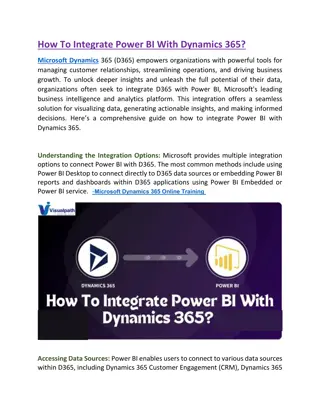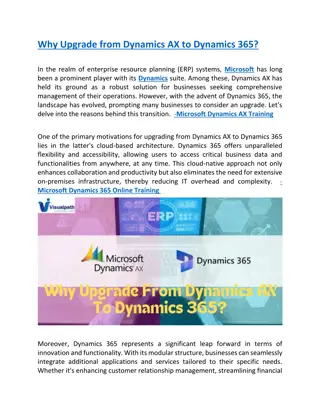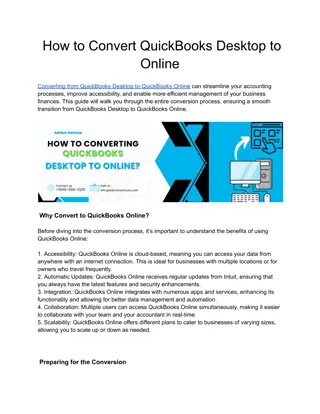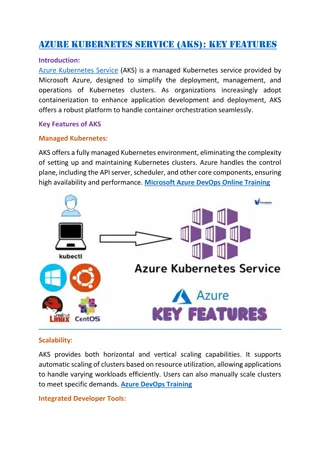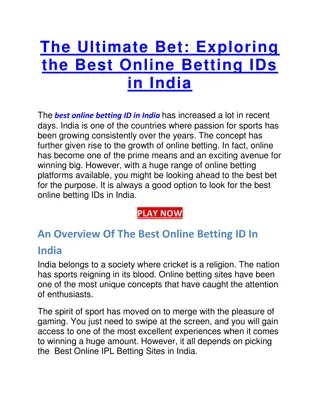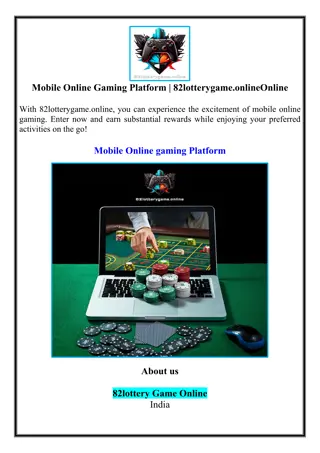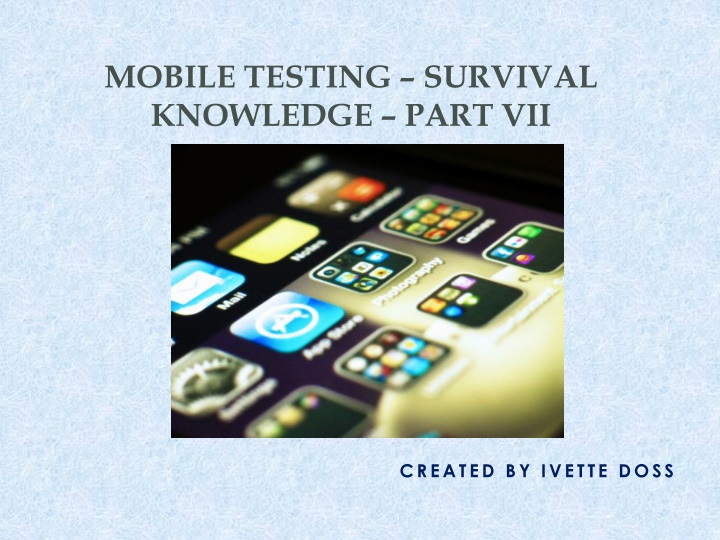
Native Mobile Applications and Their Uniqueness
Explore the uniqueness of native mobile applications, their need to run directly on device operating systems, access to hardware features, advanced functions, and offline capabilities. Learn about the industries best suited for native apps and the comparison between native and web apps in terms of user interface, development, and capabilities.
Download Presentation

Please find below an Image/Link to download the presentation.
The content on the website is provided AS IS for your information and personal use only. It may not be sold, licensed, or shared on other websites without obtaining consent from the author. If you encounter any issues during the download, it is possible that the publisher has removed the file from their server.
You are allowed to download the files provided on this website for personal or commercial use, subject to the condition that they are used lawfully. All files are the property of their respective owners.
The content on the website is provided AS IS for your information and personal use only. It may not be sold, licensed, or shared on other websites without obtaining consent from the author.
E N D
Presentation Transcript
MOBILE TESTING SURVIVAL KNOWLEDGE PART VII CREATED BY IVETTE DOSS
OBJECTIVE FOR TODAY: 7. Practicum2 Native Mobile Application: Introduction to Native Mobile Application Industries and needs in Mobile Native application specific of Native Mobile Application Testing Interview Questions and Answers Homework: Write 30 Test Cases that will provide Full Test Coverage for the Mobile Native Application
UNIQUENESS OF NATIVE APP Native mobile applications run directly on a mobile device's operating system, are fast and have access to all hardware features. Native applications can operate connected and disconnected from a network. Several of the features that make mobile devices unique (e.g. location awareness) require a network connection. Native applications offer the most advanced functions, visually rich content and possibly the best user experience. Native applications that collect data to send to server-based applications and additionally operate in disconnected mode, must synchronize the data periodically with the server-based applications. This requirement adds to the complexity of the mobile application. You should use a native application when either, (a) you need access to hardware features on the mobile device; or (b) the application needs to run in disconnected mode or use local storage; or (c) communication costs are high.
NATIVE APPLICATIONS Applications that are most suitable for a native platform include games, social networking, lifestyle and entertainment, technology, gadgets and travel.
WP WP
COMPARISON OF NATIVE APP VS. MOBILE WEB APP User Interface Notice that, in terms of the general look- and-feel, there s little difference between the two, making for a consistent user experience
COMPARISON OF NATIVE APP VS. MOBILE WEB APP Development
COMPARISON OF NATIVE APP VS. MOBILE WEB APP Capabilities
COMPARISON OF NATIVE APP VS. MOBILE WEB APP Monetization
COMPARISON OF NATIVE APP VS. MOBILE WEB APP Method of Delivery
COMPARISON OF NATIVE APP VS. MOBILE WEB APP Versioning of the App
COMPARISON OF NATIVE APP VS. MOBILE WEB APP Versioning of the App
COMPARISON OF NATIVE APP VS. MOBILE WEB APP Strengths
COMPARISON OF NATIVE APP VS. MOBILE WEB APP Weaknesses
HELPFUL LINKS http://www.drdobbs.com/mobile/free- native-mobile-app-performance- monit/240152389 http://www.telerik.com/automated- testing-tools/ios-testing.aspx








